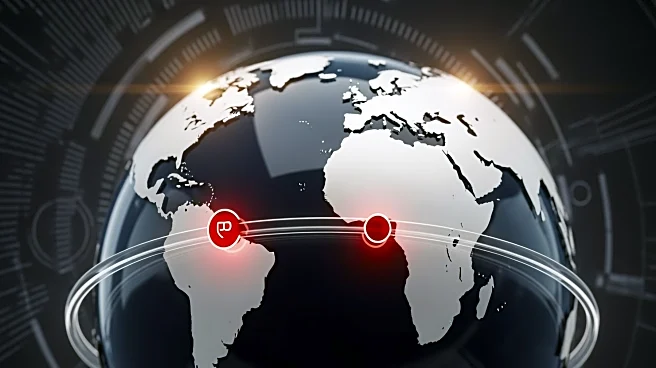What's Happening?
President Donald Trump has reignited the 'G2' concept in U.S.-China relations, a term that suggests a power equilibrium between the two nations. This term, first proposed by economist C. Fred Bergsten
in 2005, implies that the U.S. and China are peers on the global stage. Trump's recent use of the term during a summit with Chinese leader Xi Jinping has raised concerns among U.S. allies who fear that this could lead to the U.S. making deals with China that might disadvantage them. The term had been previously rejected by Washington, including during Trump's first term, due to its implications of sidelining other global partners.
Why It's Important?
The revival of the 'G2' concept is significant as it could reshape global diplomatic dynamics. For China, being recognized as a peer to the U.S. on the global stage is a long-sought goal, potentially enhancing its influence. However, U.S. allies, particularly in Asia, may view this as a threat to their interests, fearing that their concerns might be overlooked in favor of U.S.-China bilateral agreements. This development could lead to shifts in international alliances and strategies, as countries reassess their positions in response to a potential U.S.-China duopoly.
What's Next?
The international community will be closely monitoring the U.S.-China interactions following Trump's endorsement of the 'G2' concept. Allies may seek reassurances from the U.S. regarding their roles and interests in global affairs. Additionally, China might leverage this opportunity to strengthen its diplomatic and economic ties with other nations, further solidifying its global standing. The U.S. administration will need to navigate these diplomatic waters carefully to maintain its alliances while engaging with China.
Beyond the Headlines
The 'G2' concept touches on deeper issues of global governance and the balance of power. It raises questions about the future of multilateralism and the role of international organizations like the G7 and G20. The potential shift towards a bipolar world order could have long-term implications for global trade, security, and environmental policies, as the two superpowers might prioritize their bilateral interests over broader international cooperation.











